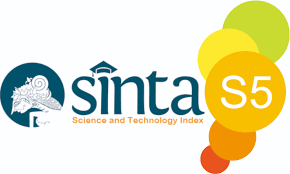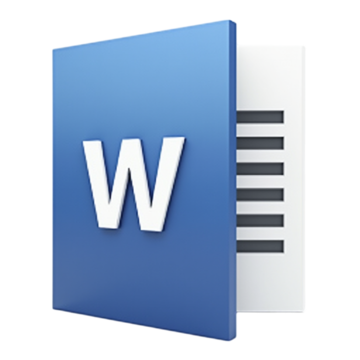Cultivation of Digital Literacy Culture Through an Interest in Reading Literature 21st Century Life Skills
DOI:
https://doi.org/10.22460/jler.v6i3.20275Keywords:
Digital literacy culture, interest in reading literature, 21st-century life skillsAbstract
This study aims to photograph or measure the culture of digital literacy in early adolescents, around 11-14 years or junior high school level. This research was conducted on students of SMP Pahlawan Toha Bandung, totaling 40 students. The research was conducted by surveying the understanding and ability to use digital devices, as well as students' interest in reading literature through the devices they have. The research method used is quantitative descriptive, the research subjects are students of SMP Pahlawan Toha Bandung, and the object of research is survey data on the level of digital literacy culture among students. The instrument used is in the form of a questionnaire compiled through the media Google form which is distributed to students, then proceed with coding data, tabulating, scoring, and data analysis to conclude. The study results show a cultural portrait of early adolescent digital literacy at SMP Pahlawan Toha Bandung, which is known to be going well and has become entrenched, shown by 95% of students being able to use technology and information media tools properly, and ethically. Even so, having digital literacy competence will not always automatically increase interest in reading or writing literacy, let alone interest in literary literacy. Efforts are needed to ensure that the better students use digital media as a tool to help, make it easier to access literacy materials, and obtain general and specific information related to literary works, the better will be the achievement of student life skills competencies in the 21st century.
References
Alamsari. (2016). Pembelajaran Sastra Berbasis Multiple Intellegences : Solusi Menghadapi Abad 21. 1(2).
Anggraini, S. (2016). Budaya literasi dalam komunikasi. XV(3), 264–279.
Arikunto. (2006). Prosedur Penelitian Suatu Pendekatan Praktek. PT. Rieneka Cipta.
Azwar, S. (2013). Metode Penelitian. Pustaka Pelajar.
Damaianti, V. S. (2021). Literasi Membaca Hasrat Memahami Makna Kehidupan (Kesatu). PT Refika Aditama.
Hatmoko, J. H. (2015). Survei Minat Dan Motivasi Siswa Putri Terhadap Mata Pelajaran Penjasorkes Di Smk Se-Kota Salatiga Tahun 2013. E-Jurnal Physical Education, Sport, Health and Recreation, 4(4), 1729–1736. http://journal.unnes.ac.id/sju/index.php/peshr%0ASURVEI
Kholid. (2020). Pentingnya Literasi Digital bagi Guru Pada Lembaga Pendidikan Tingkat Dasar dan Implikasinya Terhadap Penyelenggaraan Kegiatan Belajar Mengajar. Jurnal Horizon Pendagogia, 1(1), 22–27. https://jurnal.untirta.ac.id/index.php/jhp/article/viewFile/10422/6784
Kuo, N. (2016). Promoting Family Literacy Through the Five Pillars of Family and Community Engagement ( FACE ). 26(1), 199–222.
Kurniadi, B. B., Bukit, P., Tamba, M., & Modesta, E. (2023). kompetensi; siswa; literasi digital; pembelajaran daring. 14(1), 155–170.
Kurnianingsih, I., Rosini, dan Ismayati, N. (2017). (literacy)Upaya Peningkatan Kemampuan Literasi Digital bagi Tenaga. Jurnal Pengabdian Kepada Masyarakat, 3(1), 61–76. http://jurnal.ugm.ac.id/jpkm
Luthfiyani, R. (2022). Strategi Meningkatkan Kemampuan Literasi Sastra. 28, 109–144. https://www.jurnal.ugj.ac.id/index.php/PBB/article/download/7407/2963
Mcdougall, J., Readman, M., & Wilkinson, P. (2018). The uses of ( digital ) literacy. 9884. https://doi.org/10.1080/17439884.2018.1462206
Muin, M. A. (2013). Strategi Penelusuran Informasi Online Alauddin University Press. In Alaudin University press.
Murnane, R., Isabel, S., & Chaterine, S. (2012). Literacy Challenges for the Twenty-First Century: Introducing the Issue. 22(2), 3–15. https://doi.org/10.1353/foc.2012.0013
Nurfadhillah, S., Ningsih, D. A., Ramadhania, P. R., Sifa, U. N., & Tangerang, U. M. (2021). Peranan Media Pembelajaran. 3, 243–255.
Pangarepan. (2022). Status Literasi Digital Di Indonesia 2022. KOMINFO.
Sarwono. (2000). Teori-Teori Psikologi Sosial. Raja Grafindo Perkasa.
Supandi, A., Sahrazad, S., Wibowo, A. N., & Widiyarto, S. (2020). Analisis Kompetensi Guru: Pembelajaran Revolusi Industri 4.0. Seminar Nasional Bahasa Dan Sastra Indonesia (Prosiding SAMASTA), 1–6.
Syah, R., Darmawan, D., & Purnawan, A. (2019). Analisis Faktor yang Mempengaruhi Kemampuan Literasi Digital. In Jurnal AKRAB (Vol. 10, Issue 2, pp. 60–69). https://doi.org/10.51495/jurnalakrab.v10i2.290
Zuhria, A. F., Kurnia, M. D., & Hasanudin, C. (2022). Dampak Era Digital terhadap Minat Baca Remaja. 1(November 2022), 17–23.
Downloads
Published
Issue
Section
License

This work is licensed under a Creative Commons Attribution-ShareAlike 4.0 International License.






